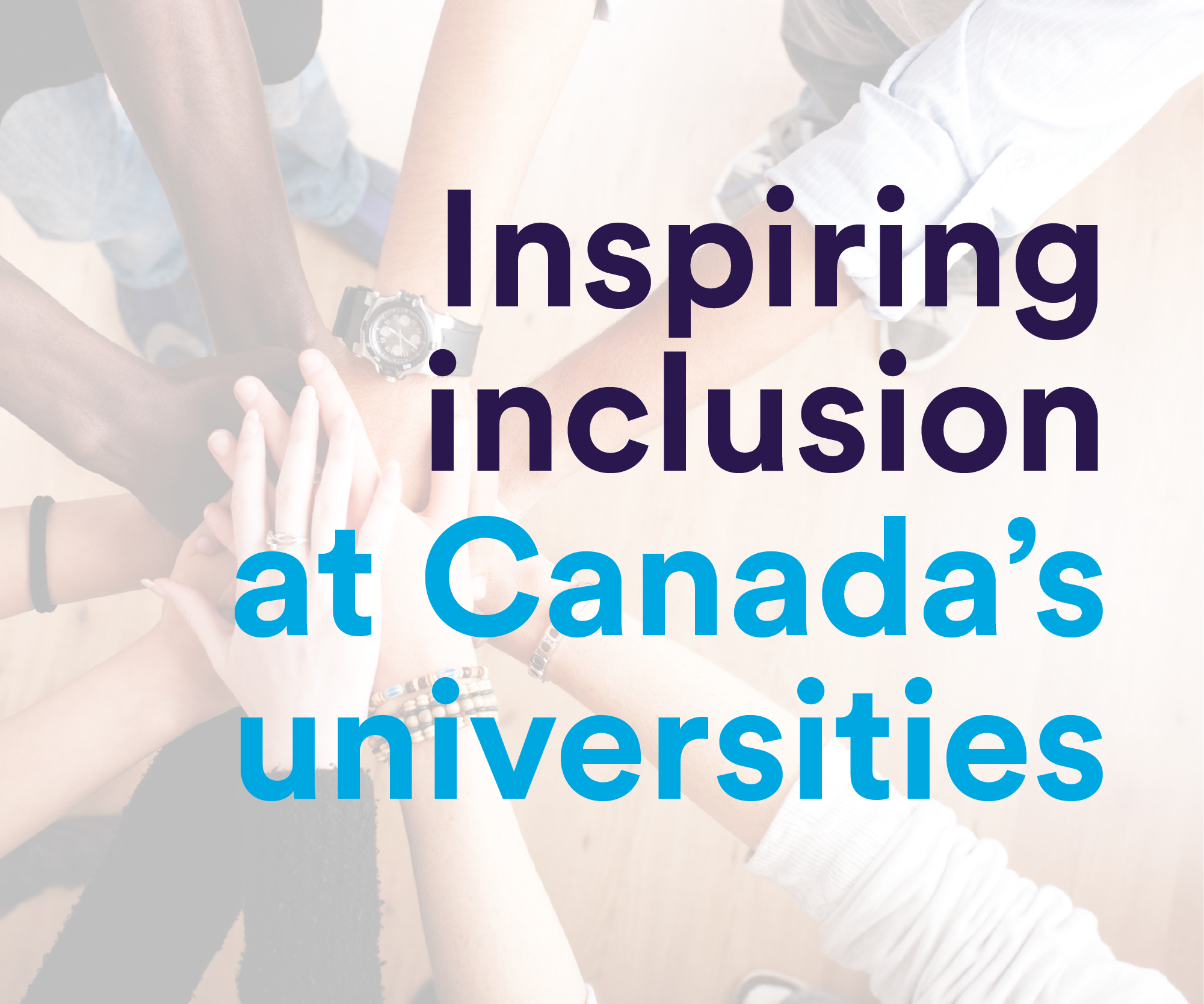Equity, diversity and inclusion at Canadian universities: Report on the 2019 survey

Mobilizing a full spectrum of ideas, talent and experiences is essential to creating a higher education and research ecosystem that responds to changing Canadian demographics and global challenges. Doing so helps build an innovative, prosperous and inclusive country – and creates institutions that are responsive, nimble and able to ensure the next generation can navigate a fast-paced changing world.
In October 2017, Universities Canada members endorsed seven Inclusive Excellence Principles as part of their ongoing commitment to advance equity, diversity and inclusion (EDI). At the same time, Universities Canada committed to a five-year action plan to support members’ progress.
In accordance with the action plan, Universities Canada launched its first-ever comprehensive national survey in February 2019 to make EDI data available for benchmarking and to:
- Better understand the current EDI institutional landscape.
- Enable members to compare results and share promising practices.
- Inform Universities Canada’s advocacy and capacity building activities.
Survey results indicate that universities are prioritizing EDI action plans, strategies and policies; the recruitment and retention of diverse talent among senior leaders, faculty, staff and students; and reconciliation and Indigenization. However, this survey shows that the higher education community, like many sectors, must continue to do more to advance EDI and demonstrate progress over time.
To help move policies and practices in the right direction, the survey reveals that 77% of universities currently reference EDI in their institution’s strategic plan or longer-term planning documents, and that 70% of institutions either already have or are in the process of developing an EDI action plan.
Nevertheless, the data shows that even with these activities and with the best of intentions, there are common challenges to making progress, including:
- A lack of resources.
- Difficulty attracting and retaining diverse talent, including in senior leadership.
- Institutional systems, policies, structures and cultures that can hinder progress.
- A lack of data on institutional challenges.
- Insufficient information on best practices for EDI.
Respondents identified a lack of resources as a top challenge. This includes funding for recruitment and retention, and funding to support EDI staff and initiatives. For example, of those institutions with EDI offices, a third (32%) have one or less full-time equivalent staff.
A lack of diversity in senior leadership, especially of racialized people, is also a key finding of the survey. Approximately 60% of senior university leaders identify as belonging to at least one of the designated equity-deserving groups (women, racialized peoples, people with disabilities, Indigenous Peoples, LGBTQ2S+). While racialized people represent 8% of senior leaders, they represent 21% of full-time faculty, 31% of doctorate holders and 22% of the Canadian general population. While the proportion of women in senior leadership positions (49%) in universities is now almost proportionate to that of men, there remain few women in the executive head and vice-president positions at Canadian universities.
Most institutions (78%) either have or are in the process of developing an EDI task force or EDI advisory group drawing on people from across the institution to support the development and implementation of EDI strategies, policies and practices. But there are still many challenges around data collection and analysis to inform such initiatives. There appears to be a lack of self-identification data on students, for example. And there are opportunities to expand pay audits and improve the collection of climate/culture data. EDI leads also identified a need to improve intersectional analysis. While 24% reported that their institution always or usually considers intersectionality in policy and program development, 43% indicated they sometimes do while 13% never do.
Promising practices
Despite the reported challenges, through this exercise, institutions from across Canada shared promising practices they are pursuing to help realize the potential of inclusive excellence. Examples of these promising practices are shared throughout this report. They highlight how universities are working to recruit and retain diverse students, faculty, staff and senior leaders – and how they are integrating EDI principles, policies and practices into research, teaching, learning, alumni relations and community engagement. Universities are undertaking a wide range of EDI activities, and while two-thirds report sharing promising practices with others, many leaders express a desire for further opportunities to share Canadian-focused EDI research, toolkits and resources.
The path forward
Beyond collecting and sharing national EDI data via this report, Universities Canada will continue to make progress on its five-year action plan to support members’ implementation of the Inclusive Excellence Principles. The survey data will be used to inform the development of capacity building tools and coordinate efforts with staff at the tri-agencies to avoid duplication of efforts and to promote institutional success stories and individuals. As well, Universities Canada will continue to engage with Statistics Canada on EDI data collection and with government officials to advocate for resources to support EDI. A follow-up member survey is planned for 2022.




